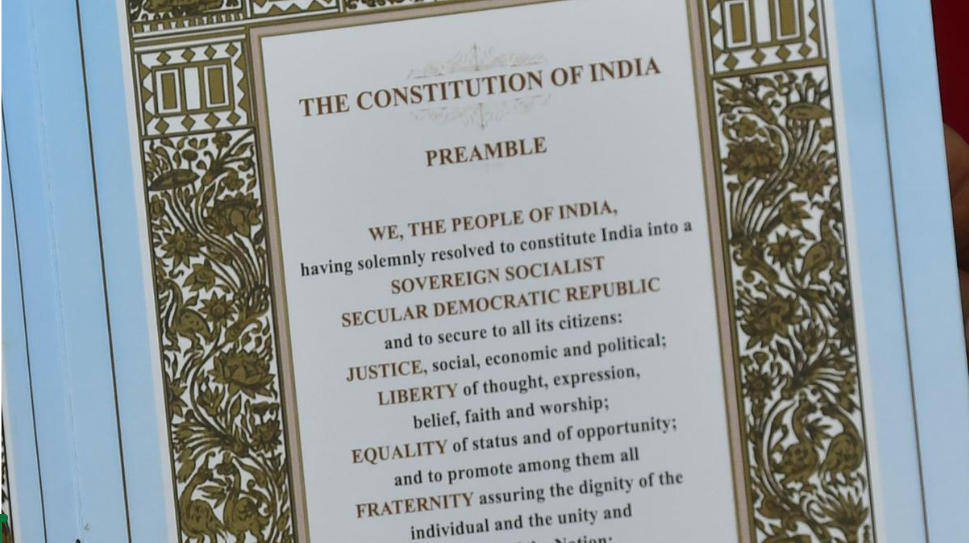Socialist & Secular- Integral Part of Constitution (Prelims & Mains- Polity & Constitution)
Why in news?
The Supreme Court on Monday, in an order, upheld the inclusion of ‘socialist, secular’ in the Preamble of the Constitution.

Background
- The order was based on a batch of petitions filed in 2020 challenging the validity of the inclusion of ‘socialist’ and ‘secular’ in the Preamble through the 42nd Constitution Amendment in 1976.
- The petitioners, who included Bharatiya Janata Party (BJP) leader Subramanian Swamy, argued that the insertions made with retrospective effect, that is, from the date of adoption of the Constitution by the Constituent Assembly on November 26, 1949 amounted to a fraud on the Constitution.
- Besides, they argued, the word ‘secular’ was deliberately ignored by the Constituent Assembly and the word ‘socialist’ fettered the economic policy choice of the elected government, which represents the will of the people.
- The court found the motives of the petitions, filed nearly 44 years after ‘secular’ and ‘socialist’ were inserted in the Preamble, “questionable”.
Supreme Court’s Verdict
- The Supreme Court observed that the word ‘secular’ denotes a Republic that upholds equal respect for all religions. ‘Socialist’ represents a Republic dedicated to eliminating all forms of exploitation — whether social, political, or economic.
- The court held that the Preamble was an inalienable part of the Constitution. The Parliament had an unquestionable power to amend the Constitution under Article 368. Its power to amend extended to the Preamble. The court confirmed the retrospective amendment to the Preamble, saying the date of adoption would not curtail the power under Article 368. The fact that the Constitution was adopted on the 26th day of November, 1949, does not make any difference.
- The court explained that the Constitution was a “living document”, and open to changes according to the needs of the time.
- Though the Constituent Assembly was not sure about what ‘secularism’ should entail in India, the court said, over time the nation has developed its own interpretation of the term, which has become a basic feature of the Constitution.
In 1949, the term ‘secular’ was considered imprecise, as some scholars and jurists had interpreted it as being opposed to religion.
- The State neither supports any religion nor penalises the profession and practice of any faith. This principle is enshrined in Articles 14, 15, and 16 of the Constitution, which prohibit discrimination against citizens on religious grounds while guaranteeing equal protection of laws and equal opportunity in public employment,” the Supreme Court observed.
Indian Notion of Socialism and Secularism
In the Indian framework, socialism embodies the principle of economic and social justice, wherein the State ensures that no citizen is disadvantaged due to economic or social circumstances. The word ‘socialism’ reflects the goal of economic and social upliftment and does not restrict private entrepreneurship and the right to business and trade, a fundamental right under Article 19(1)(g).
Secularism means that the state does not give shelter to any particular religion. Religion means accepting personal matters and allowing them to behave according to their religion. Secularism is not atheism but has the same faith in all religions and there will be no particular religion of the state. Also, political system will not be governed by religion. Citizens of different faiths may be living in the states. Every citizen can live life freely according to his or her religion.
The word ‘secular’ was explained as denoting a republic that upholds equal respect for all religions, while ‘socialist’ was characterized as representing a republic dedicated to eliminating all forms of exploitation—whether social, political, or economic.


